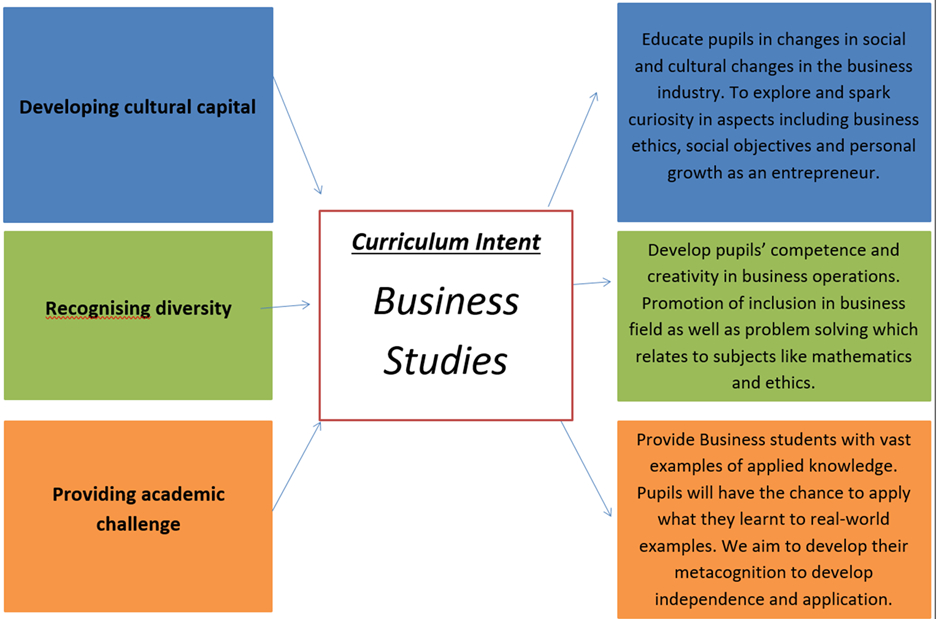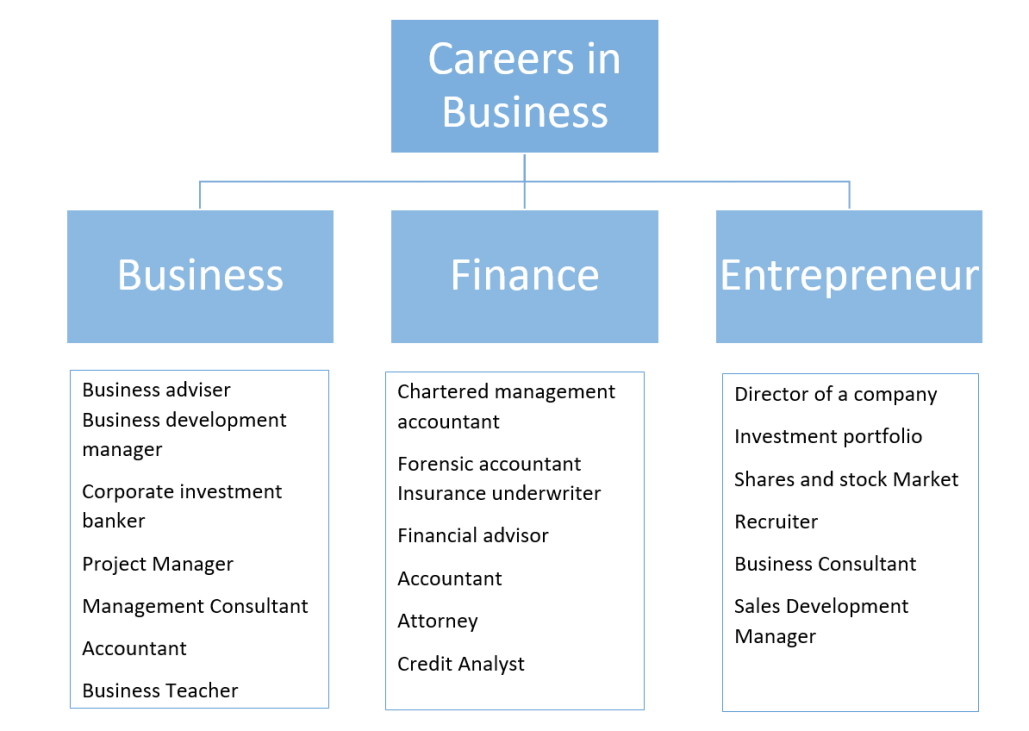Curriculum Structure (Overview)
| | Term 1 | Term 2 | Term 3 | Term 4 | Term 5 | Term 6 |
| Year 10 | Topic 1.1: Enterprise and entrepreneurship | Topic 1.2: Spotting a business opportunity | Topic 1.3: Putting a business idea into practice | Topic 1.4: Making the business effective | Topic 1.5: Understanding the external influences on business | Topic 2.1: Growing the business |
| Year 11 | Topic 2.2: Making marketing decisions | Topic 2.3: Making operational decisions | Topic 2.4: Making financial decisions | Topic 2.5: Making human resource decisions | Revision | |
Year 10
In Year 10 students complete Theme 1: Investigating Small Business and start Theme 2: Building a Business.
Students are introduced to the dynamic nature of business in relation to how and why business ideas come about. They will explore how new and small businesses identify opportunities through understanding customer needs and conducting market research. Students will also explore a range of factors that impact on the success of the business, including competition, location, the marketing mix and the business plan. They are introduced to a range of external factors, such as stakeholders, technology, legislation and the economy. Finally, students are introduced to methods of growth and how and why business aims and objectives change as businesses evolve.
Year 11
In Year 11 students complete Theme 2.
Students will explore how each element of the marketing mix is managed and used to inform and make business decisions in a competitive marketplace. Students will understand the tools a business has to support financial decision making, including ratio analysis and the use and limitation of a range of financial information. Finally, aspects of growing a business such as organisational structure, recruitment, training and motivation are explored.
Students then start a structured revision programme to prepare for their Business GCSE examination.
Pupils gain insights into real world application of marketing, human resources, ownership structures and market structures by reading business news and developing data response and evaluation skills.
Assessment at GCSE
The Edexcel GCSE (9–1) in Business consists of two externally-examined papers, one covering Theme 1 content and one covering Theme 2 content, both sat in May/June of Year 11.
Theme 1: Investigating small business
Written examination: 1 hour and 45 minutes 50% of the qualification 90 marks
Content Overview
Topic 1.1 Enterprise and entrepreneurship
Topic 1.2 Spotting a business opportunity
Topic 1.3 Putting a business idea into practice
Topic 1.4 Making the business effective
Topic 1.5 Understanding external influences on business
Assessment Overview
The paper is divided into three sections: Section A: 35 marks Section B: 30 marks Section C: 25 marks.
The paper will consist of calculations, multiple-choice, short-answer and extended-writing questions.
Questions in Sections B and C will be based on business contexts given in the paper.
Theme 2: Building a business
Written examination: 1 hour and 45 minutes 50% of the qualification 90 marks
Content Overview
Topic 2.1 Growing the business
Topic 2.2 Making marketing decisions
Topic 2.3 Making operational decisions
Topic 2.4 Making financial decisions
Topic 2.5 Making human resource decisions
Assessment Overview
The paper is divided into three sections: Section A: 35 marks Section B: 30 marks Section C: 25 marks.
The paper will consist of calculations, multiple-choice, short-answer and extended-writing questions. Questions in Sections B and C will be based on business contexts given in the paper.
Years 12 and 13

No prior experience is necessary to study Business Studies at A Level, although a GCSE grade 5 in Maths and English is required.
Business is always headlining news. Whether it be Brexit or unscrupulous businesses avoiding their tax, it’s a talking point for all citizens and an important part of your life.
In studying business, you will find out;
- Key business terms, concepts, theories and models of how individuals and organisations are affected by business decisions.
- How to apply tour knowledge and understanding to real business contexts and situations.
- How to analyse influences that internally and externally impact on businesses and individuals.
- How to use quantitative and qualitative information to make recommendations, judgements and propose solutions to business issues.
You will take three, two-hour exams at the end of year 13.
Paper 1 Marketing, people and global businesses (35%)
Paper 2 Business activities, decisions and strategy (35%)
Paper 3 Investigating business in a competitive environment (30%)
Underpinning these units, you will carry out calculations, interpreting data, thinking critically about issues and making informed decisions. These analysis and evaluation skills are all the skills that are needed for further study and employment.
Business can lead to a career in in marketing, finance, law or personnel. It also fits in well with the management aspects of many careers.



